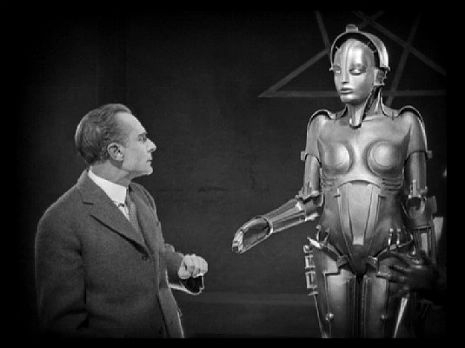
Last month on 60 Minutes, reporter Steve Kroft filed a fascinating story about how technological advances in automation and robotics have totally revolutionized American business and manufacturing, while we’ve seen the number of decent paying jobs shrink.
After he indicated how information workers like paralegals are about to become as SOL as airport counter personal and travel agents, two of the Kroft’s interviewees, MIT professors Erik Brynjolfsson and Andrew McAfee, told him we ain’t seen nuthin’ yet:
Andrew McAfee: Our economy is bigger than it was before the start of the Great Recession. Corporate profits are back. Business investment in hardware and software is back higher than it’s ever been. What’s not back is the jobs.
Steve Kroft: And you think technology and increased automation is a factor in that?
Erik Brynjolfsson: Absolutely.
I’ve never really considered 60 Minutes to be much of a cutting edge outlet to “break” stories, instead I feel like once a story has made it to the highest rated American news magazine, that it’s been minted, or confirmed, as a legitimate mainstream thing (or celebrity or whatever). That’s to say that by the time 60 Minutes gets around to reporting on some sort of long-term trend we’re usually already mired DEEP within this event. Sometimes, not just as a nation, but in this case, as with global warming or AIDS, as a planet.
What is so remarkable to ponder—and it’s touched on somewhat in this piece—is how cost-efficient advances in automation will probably have the most negative consequences in countries like China and India, not the first world countries where automated manufacturing plants will probably mostly end up being built. Shipping to the US from China, for instance, adds a not inconsiderable amount of cost to the price of a given commodity. To purchase one of the robots featured in the segment would be cheaper than three years of Chinese labor. There’s cold comfort in that for the “Made in America” crowd, of course, as it’s not like there’s going to be that many more jobs created in America if production is brought back to these shores.
There sure will be a hell of a lot fewer opportunities for employment in the Third World, though, this much seems assured.
It brings up the question of how the wealth of nations will be divvied up when only the holders (hoarders, if you prefer) of capital, employing armies of automatons and few human beings, will hold ALL the cards? Clearly not sustainable and besides that, WHO is going to buy their products anyway when no one will have a job or any money in the first place? In America, and around the world, too, we’re moving away from the notion of “Fordism” at a breakneck pace.
The long-term implications for the longevity of the capitalist system seem dire indeed when viewed through this lens (and let’s not forget, this sort of circling the toilet bowl endgame was predicted by a certain Mr. Karl Marx many, many years ago). The implications of all of this are enormous.
Labor unions will become obsolete in such a scenario, although in a sense, they’ll be replaced by much larger armies of the long-term unemployed!
The flipside of all this is a free-market sort of argument that holds as prices for automated “workers” would come down, there should be a corresponding explosion in small business innovation. Whereas, I do think that is possible with certain cases, how many people do you personally know who would make good entrepreneurs in this bold robotic future?
Unless there’s an Elon Musk born every second, we’re doomed!